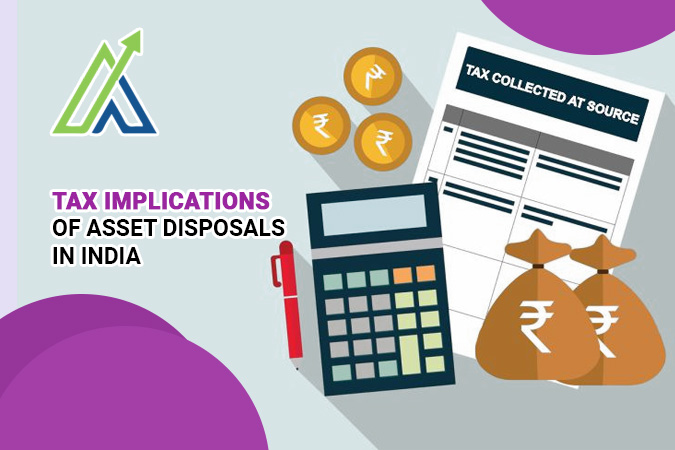When you get rid of an asset—whether by selling it, trading it, or simply discarding it—you need to understand the tax consequences. In India, the tax rules around asset disposal can be pretty complicated. This guide breaks it down for everyone.
Types of Assets and Holding Periods
In India, assets fall into two main categories:
- Capital Assets: This includes property, stocks, bonds, and other investments.
- Non-Capital Assets: Typically, this refers to inventory in a business.
- Short-term vs. Long-term: Know Your Gains
- The holding period determines whether your gains are short-term or long-term:
- Short-term Capital Gains (STCG): For assets held less than 36 months (24 months for property).
- Long-term Capital Gains (LTCG): For assets held more than 36 months (24 months for property).
Tax Rates on Capital Gains
The tax rates vary for short-term and long-term gains:
- STCG on Equity Shares: Taxed at a flat rate of 15%.
- LTCG on Equity Shares: Exempt up to INR 1 lakh, then taxed at 10% without indexation.
Example: If Raj sells his equity shares after 18 months, his profit is STCG and taxed at 15%.
Smart Moves: Leveraging Indexation Benefits
Indexation adjusts the purchase price of an asset for inflation, reducing taxable gains. This mainly applies to LTCG on assets other than listed securities and equity-oriented mutual funds.
Example: Priya bought property in 2005 for INR 20 lakh and sold it in 2020 for INR 50 lakh. Indexation adjusts the purchase price for inflation, lowering her taxable gain.
Maximizing Savings: Exemptions and Deductions
Several sections of the Income Tax Act offer exemptions and deductions to cut down your tax bill:
- Section 54: Exemption on gains from selling residential property if reinvested in another residential property.
- Section 54EC: Exemption if gains are invested in specific bonds (like REC, NHAI) within six months.
- Section 54F: Exemption on gains from any asset (other than residential property) if reinvested in a residential property.
Example: Anil sells his residential property and invests the gains in another property within two years. He can claim exemption under Section 54.
Depreciable Assets and Block of Assets
For businesses, selling depreciable assets has different tax rules. Gains from such assets are treated as STCG, no matter how long you’ve held them.
Example: A company sells its machinery after five years. The gains are STCG because machinery is a depreciable asset.
Navigating Asset Exchanges
Exchanging assets instead of selling them complicates tax calculations. The fair market value of the received asset is considered the sale value, and capital gains are calculated from there.
Example: Ramesh trades his old car for a new one. The market value of the new car determines the capital gains from disposing of the old car.
Business Impact: Adjusting for Depreciation
For businesses, selling assets affects both capital gains tax and future depreciation claims. The sale value is subtracted from the block of assets, and any shortfall or excess is adjusted against business income or capital gains.
Example: A company sells a building from its asset block, reducing the block value and thus the depreciation claimable in future years.
Questions to understand your ability
Q: Which one counts as a capital asset in India?
- a) Business inventory
- b) Property
- c) Office supplies
- d) Raw materials
Q: How long must you hold immovable property for it to be a Long-term Capital Gain (LTCG)?
- Less than 12 months
- Over 12 months
- Over 24 months
- Less than 24 months
Q: What’s the tax rate on Short-term Capital Gains (STCG) from equity shares?
- a) 10%
- b) 15%
- c) 20%
- d) 25%
Q: Which section gives you a tax break if you sell a home and buy another one?
- Section 54
- Section 54EC
- Section 54F
- Section 80C
Q: How does indexation help with Long-term Capital Gains tax?
- Cuts the holding period
- Adjusts purchase price for inflation
- Increases sale price
- Provides a fixed deduction
Conclusion
Understanding the tax implications of asset disposal in India is vital for good financial planning. Knowing the different types of gains, the applicable exemptions, and the specific rules for depreciable assets can help you manage your tax liability better. Always consult a tax professional to navigate these complexities and make informed decisions.
FAQ's
Short-term gains from stocks get hit with a 15% tax.

